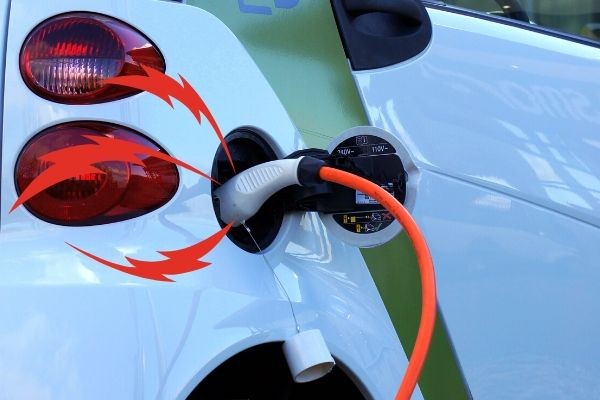
What is worse than waiting for an 80% charge? The solution is supercharging, that is better. In the future, fast charging car batteries done in 10 minutes. No more waiting, except filling up a car with gas (an internal combustion engine is still faster).
What is worse than waiting for an 80% charge? The solution is supercharging, that is better. In the future, fast charging car batteries done in 10 minutes. No more waiting, except filling up a car with gas (an internal combustion engine is still faster).
Imagine getting a 200-mile charge that fast, which is something that will drive sales of EVs. This research has proven how fast electric vehicle technology has developed. Small or big EVs will benefit from the commercial application of the charging tech. But, who will own is yet to be known.
Slow charging lithium-ion car batteries is a thorn on the side of electric car owners. If smaller EVs, with 100 miles range had a short charging time. They would still have to charge. If this happens where there is no charging station. This will be the worst scenario for them! Fast charging is a factor to encourage EV use.
Who to thank for this technical achievement are three scientists, were able to engineer this feat chemically. The energy is generated fast and stored several times in controlled experiments. This noble prize will shoot charging technology into a proverbial race for tech firms.
Due to the range boundaries of electric car batteries, unless a hybrid, they would go dead in the water. Brisk battery charging will allow EVs to travel the gird at farther distances. Giving EVs more running than charging time. More charging stations are built, and Tesla has one of the biggest networks.
How does rapid charging work?
High current is fed at higher temperatures, not at low temperatures. The advantage of high temperatures is faster moving lithium ions, avoiding the formation of spikes around the anode. One problem is a hot battery, will have problems when in this heated condition.
Additionally, a high resistance is gained when there is a layer that forms on the lithium-ion components and electrolyte. This allows faster chemical charging of the car battery. Forming the film takes some time. Keeping the battery at high temp long enough for a fast charge to be possible.
An expert from PSU gave this summary about fast charging. Extended networks benefit from deployed charging stations. A 10-minute charge of 200-300 miles for extra range. Electric cars, even those 100-150 miles, would benefit from it.
Using nickel foil (thin sheaths) to allow self-heating inside the battery case. Heating to 60 C and cooling to room temperature, allows an 80% charge in 10 minutes (lab). Taking care not to damage the cell. This is exactly how a Tesla supercharger works.
Conclusion
Fast charging is completed in 10 minutes, the tech is innovative for car batteries. Even if the batteries used are 10 amperes, it showed promise. It all depends how big the battery is and how much juice is pumped into it. Fast charging anyone?
See Now: OnePlus 6: How Different Will It Be From OnePlus 5?



























